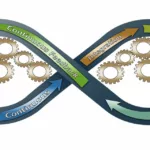After sending countless resumes in with little response, determination becomes frustration and frustration becomes desperation. Then comes the numbers game –where you simply copy and paste the same generic resume and send it out en masse.
You may think to yourself: “If I cast a wide enough net, I’m bound to catch some fish.” Well, that ideology is flawed –in fact, it may even decrease your chances of landing a job.
The job application process isn’t easy –nor does it have any shortcuts. Copy and pasting the same resume over and over shows a lack of commitment and work ethic. Instead of cutting corners, consider these tips on how to make better decisions and achieve better outcomes in your job search.
Adopt a Lifelong Learner Mindset
Graduation from an institution of higher learning doesn’t mean you don’t need to learn anymore –in fact, it is just the bare minimum in terms of the knowledge you need to grow and succeed in the workplace. Without any other discernable skills, there is nothing that distinguishes you as a top-tier candidate –it only confirms that you have learned enough to do the job, not how well you can do it.
On average, employers receive 250 resumes per job opening. Job-seekers, then, must find ways to draw attention to their resumes. What separates a candidate from a top-tier candidate is the amount of additional value they can provide. Being able to perform the functions of the position has no added value –its what they’re paying you for. Lifelong learners can offer more than what the position requires –they’re able to assist other parts of the company by utilizing the skills they’ve picked up along the way.
We live in an ever-changing world, with technology getting better by the day. Trying to succeed with a static skillset in a shifting society is –to put it bluntly, futile. The jobs available today may not be there tomorrow. For example, Automation is slated to replace 40 percent of jobs in just a few years. Lifelong learners then, have an advantage because they have been learning new skills as the needs of the workplace change –allowing them to easily transition into a post-automation career.
Be Future Forward
While securing a job may be your top priority, the ‘wide net’ strategy doesn’t work. With a wide net, you’ll attract the likes of debris, seaweed, and maybe even a leather boot if you’re lucky –the leather boot, in this case, being work. I call it work and not a job or a career because often, these positions don’t provide training or any real opportunities to advance upward. As the adage goes, you get out what you put in. Low effort applications yield low-quality opportunities.
The first decade of an individual’s career is critical –it is during this time where skills are learned and more importantly when earning potential is determined. When applying for a job, consider how it will play into your first ten working years. Will there be room for upward mobility? What skills will you learn here? How will those skills transfer to the next part of your journey? Will I be engaged?
Alden Tseng from WayFindr – a software company focused on streamlining the job application process by bringing together employers, educators and individuals on a single accessible data rich platform, told me the following when I asked him about these issues:
As a job-seeker, most of your time is spent trying to demonstrate the value you can bring to a company –not once considering what value the company can bring to you. There are currently more available jobs than there are unemployed workers –a buyer’s market. Being a top-tier candidate with the right skills and experience puts you in a position where employers are the ones trying to convince you, rather than vice-versa.
Constantly Re-evaluate Yourself
Heraclitus of Ephesus, a Greek philosopher, once said:
“Change is the only constant in life.”
Like the needs of the workforce and technology, our goals change too. Rather, our priorities, wants and needs change –we change.
Not all careers are linear paths –sometimes the expectations about a certain job are not met. Perhaps you’re not getting paid enough. Maybe your current job isn’t what you want to be doing for the rest of your life –and that’s normal. The Bureau of Labor Statistics reported that younger workers stay at their job for an average of just under three years. Jobs are no longer for life.
The workplace dynamic has changed –instead of focusing on benefitting the company, you should focus on finding ways to benefit yourself. It is important to constantly evaluate what skills you’re missing and how you can learn them. After all, the workplace needs of today will not be the same three years from now. With the increase of accelerated training programs like coding bootcamps, re-skilling can be done online and with relative efficiency –creating opportunities for new careers and jobs.
After a few years of working for a large corporation, some people may want a change of pace. Initially, they accepted job offers that paid above average. But now, they are financially stable and are instead looking for fulfillment. Because we change so much throughout the course of our careers, it’s important to constantly evaluate our wants and needs. Constantly evaluating yourself gives you insights on where your interests lie. Finding a job that aligns with your interests increases engagement, which provides additional value for the company. Companies with engaged employees generate two and a half times more revenue when compared to less engaged companies. The future of job hunting lies on the shoulder of the individual, not the company.








